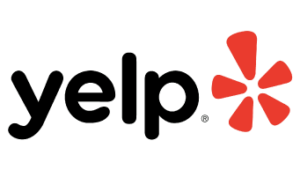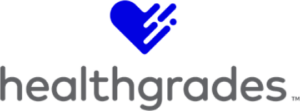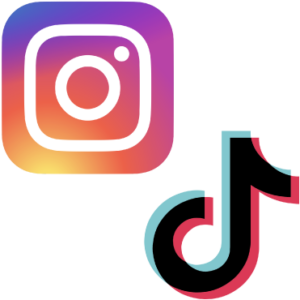Question: Last time you went out for dinner, how did you decide where to go?
Let us guess (and for the sake of the game, we’ll exclude going to your favorite place yet again); you either heard about it from friends or family, OR, you googled your options and went through the images of the food, menu, and interior. Maybe a patient recommended a good place, but you still looked it up online before deciding to give it a try. People even joke online about scouring the restaurant menu to decide what they’ll be having days before their reservation (been there).
This is how we live now.
And no industry makes for an exception. Word-of-mouth marketing has evolved beyond face-to-face conversations and now thrives on digital platforms. These platforms allow users to share their opinions and experiences with a broader audience, significantly influencing consumer decisions. Of course, we all still respect our closest ones’ recommendations, but we also look at the average ratings and ratios of good to bad reviews, and read raves and complaints alike before making a decision.
So grab a bite, in case our fine dining example made you hungry, as you review our digest (pun not intended) of the most prominent platforms to manage and keep an eye on in your digital word-of-mouth marketing journey.
The Usual Suspects: Traditional Review Platforms
Over the last decade, a myriad of healthcare-specific directories and review platforms have emerged, luring providers into investing through subscription models to increase awareness and online visibility. Most of these platforms are a waste of both time and money, as the grand majority of patients rely on these mainstream platforms to find care.
Spoiler alert: three out of four are not focused solely on healthcare.
Google Business Profile
Google Business Profile is, as the name implies, Google’s business directory essential for local businesses, including healthcare practices.
Well-maintained GBPs with optimized engagement significantly increase visibility in local searches, as this search engine of choice famously showcases GBP listings in their three-pack on local search result pages.
GBP is free and easy to set up, and we recommend you set up a listing for your location as well as separate listings for all prominent specialists to increase your chances of top rankings and make it easier for potential patients to find the doctors by name.
Reviews on Google Business Profile can make or break your business, and we’re not saying this for dramatic effect, so make sure to encourage patients to share their experiences, then monitor and timely reply to all reviews and apply relevant feedback to demonstrate a patient-centric approach.
Apple Business Connect
Apple Business Connect is a newer player in the review space that helps businesses manage their presence across Apple’s ecosystem, including Apple Maps, Siri, and other services used by millions of iOS users daily.
For healthcare practices, having a well-maintained profile on Apple Business Connect is crucial for reaching and engaging with potential patients who rely on Apple devices for their daily tasks (including doom scrolling).
By optimizing your Apple Business Connect listing, you can significantly enhance your visibility among the Team iOs audience, particularly those using Apple Maps to find local healthcare providers. The platform allows you to manage reviews and respond to patient feedback, helping build trust and a positive online reputation.
Asking satisfied patients to leave reviews on Apple Business Connect can improve your practice’s credibility and attract more patients searching for healthcare services on Apple’s platforms.
Yelp

At this point, everyone and their grandma are familiar with Yelp, a well-established platform where consumers turn to find and review local businesses, and healthcare practices are no exception.
A strong presence on Yelp can significantly impact your practice’s reputation and patient acquisition efforts.
Since Yelp is known for its detailed reviews and rating system, maintaining a high rating and actively managing your Yelp profile can significantly enhance your practice’s credibility and attract new patients who rely on these reviews to make informed decisions. And, it goes without saying that responding to reviews—whether positive or negative—demonstrates a commitment to patient satisfaction and can help build trust with potential patients.
With its widespread use and established influence, Yelp plays a critical role in modern word-of-mouth marketing, making it a platform that healthcare practices cannot afford to overlook.
Healthgrades

Hey, look, a healthcare-oriented directory!
Healthgrades is a specialized platform dedicated to healthcare providers, where patients can rate and review their experiences with doctors, clinics, and hospitals. For healthcare practices, maintaining a strong presence on Healthgrades is very important, as many patients rely on this platform to make informed decisions about their healthcare.
Healthgrades offers detailed ratings based on specific criteria such as patient experience, appointment scheduling, and the quality of care, making it a trusted resource for those wanting to dive deeper into their healthcare research and look at the stats that GBP, ABC, and Yelp don’t currently offer.
By actively managing your Healthgrades profile, responding to feedback, and addressing patients’ concerns, you can position your specialists as highly rated and widely trusted providers. When it comes to digital word-of-mouth marketing, Healthgrades stands out as a critical platform for building trust and credibility within the healthcare community.
The Outliers: Less Conventional Word-of-Mouth Platforms
While traditional review sites like GBP and Healthgrades are well-known review powerhouses, there’s a whole world of platforms that are making waves in digital word-of-mouth marketing.
While widely popular, these platforms may not be the first to come to mind when it comes to word-of-mouth marketing, but they play a crucial role in shaping public perception and influencing patient decisions.
From the community-driven discussions on Reddit to the visually captivating content on Instagram and TikTok, these platforms offer unique opportunities for healthcare practices to engage with potential patients in fresh and impactful ways.
So let’s explore how these less conventional channels can be powerful tools in your word-of-mouth marketing strategy.
Reddit is a community-driven platform where users engage in discussions across a wide range of topics, including healthcare. Unlike traditional review platforms, Reddit’s role in word-of-mouth marketing is rooted in its authentic, user-generated content within specific subreddits (communities) dedicated to health-related issues.
For healthcare practices, being mentioned positively in relevant subreddits can significantly influence potential patients, as Reddit users often trust the recommendations and experiences shared by fellow members. Engaging with Redditers by providing helpful information and answering questions can help establish your practice as a trusted brand.
While Reddit doesn’t operate as a traditional review site, the organic and often candid discussions on the platform make it a powerful tool for word-of-mouth marketing. Monitoring relevant subreddits and engaging authentically can help you enhance your reputation and visibility among a highly engaged audience—just be careful not to fall down the rabbit hole of content.
Facebook Groups

From crafty handy people to mom groups and movie fanatics, Facebook Groups cover it all. It’s a place where older millennials (and, more often than not, boomers) come together to exchange advice and experiences about shared interests.
For healthcare practices, engaging in relevant Facebook Groups offers a unique opportunity to participate in conversations that directly influence patient decisions. Word-of-mouth marketing thrives in these groups, as members often seek and share recommendations based on personal experiences.
By actively participating in these groups—whether by offering advice, answering questions, or sharing informative content—healthcare practices can build trust and establish themselves as credible sources of information.
Positive mentions and recommendations from group members can boost your reputation and lead to increased patient appointments. Facebook Groups offer a powerful, community-based platform for word-of-mouth marketing, allowing practices to connect with potential patients in a more personal and engaging way.
Instagram and TikTok

While no one in their right mind would refer to Instagram and TikTok as outliers, bear with us while we place them in this group as platforms you wouldn’t immediately turn to when it comes to reputation management.
These dynamic visual platforms engage a younger audience. Both organic user-generated content and brand-produced videos can significantly influence word-of-mouth marketing. Instagram and TikTok thrive on short, engaging content, making them ideal for sharing patient testimonials, educational snippets, and behind-the-scenes looks at your practice.
For healthcare practices, creating visually appealing and informative content on Instagram and TikTok can attract potential patients by showcasing your expertise and humanizing your practice. On the flip side, organic content created by satisfied patients—such as testimonials, experience shares, or even casual mentions—can amplify your practice’s reach and credibility. Positive experiences shared by users often resonate more authentically with potential patients, driving trust and engagement.
By monitoring and engaging with this content, and even encouraging patients to share their stories, healthcare practices can benefit from the viral potential of these platforms. Whether through curated posts or user-generated content, Instagram and TikTok offer powerful, visually-driven tools for modern word-of-mouth marketing, helping practices connect with a broader audience.
Streamlining Management of Word-of-Mouth Marketing in Healthcare
The fusion of word-of-mouth and digital marketing allows healthcare providers to participate more actively in their online reputation through monitoring and management, but this is no small feat.
With so many platforms in the game, keeping track of patient feedback and engagement can quickly become overwhelming. Manually monitoring reviews, responding to feedback, scrolling subreddits, and exploring Facebook groups, while ensuring a consistent online reputation across all platforms requires significant time and effort.
Fortunately, successful marketing trends are always followed by matching technologies, and healthcare businesses can turn to streamlined and automated solutions designed to ease this burden. Automated review requests, review management, and real-time monitoring can help ensure you stay on top of patient feedback, allowing you to respond to all reviews quickly and effectively. Comprehensive reputation management tools can provide a holistic view of your online presence, ensuring your brand image remains positive and consistent across different platforms.
SocialClimb’s comprehensive marketing platform offers a unique, all-in-one solution for managing your word-of-mouth marketing. With automated tools for review requests, monitoring, and management, SocialClimb helps healthcare businesses maintain a strong, positive online reputation while cutting on workload and resources.












